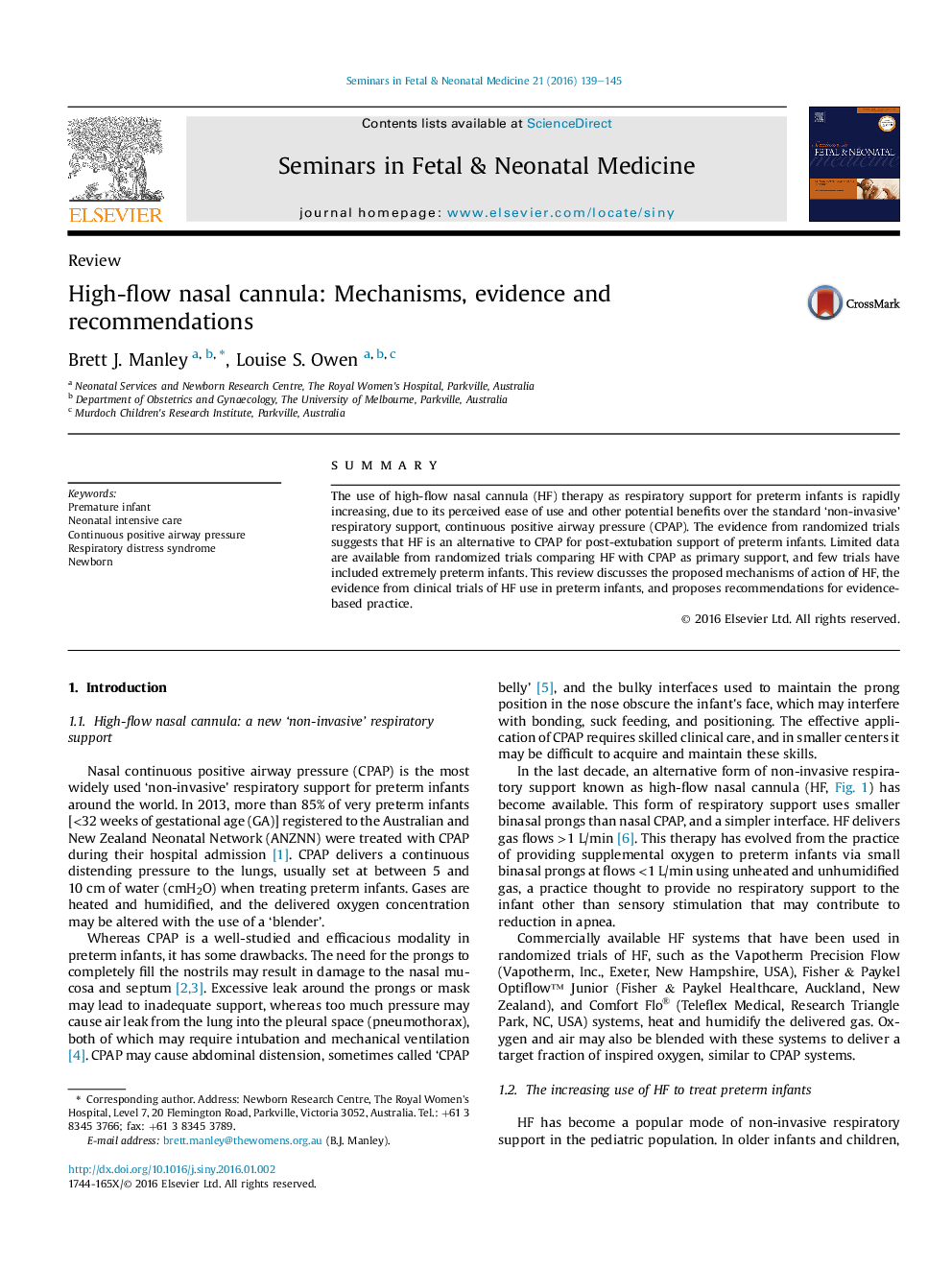| Article ID | Journal | Published Year | Pages | File Type |
|---|---|---|---|---|
| 3973948 | Seminars in Fetal and Neonatal Medicine | 2016 | 7 Pages |
Abstract
SummaryThe use of high-flow nasal cannula (HF) therapy as respiratory support for preterm infants is rapidly increasing, due to its perceived ease of use and other potential benefits over the standard ‘non-invasive’ respiratory support, continuous positive airway pressure (CPAP). The evidence from randomized trials suggests that HF is an alternative to CPAP for post-extubation support of preterm infants. Limited data are available from randomized trials comparing HF with CPAP as primary support, and few trials have included extremely preterm infants. This review discusses the proposed mechanisms of action of HF, the evidence from clinical trials of HF use in preterm infants, and proposes recommendations for evidence-based practice.
Keywords
Related Topics
Health Sciences
Medicine and Dentistry
Obstetrics, Gynecology and Women's Health
Authors
Brett J. Manley, Louise S. Owen,
